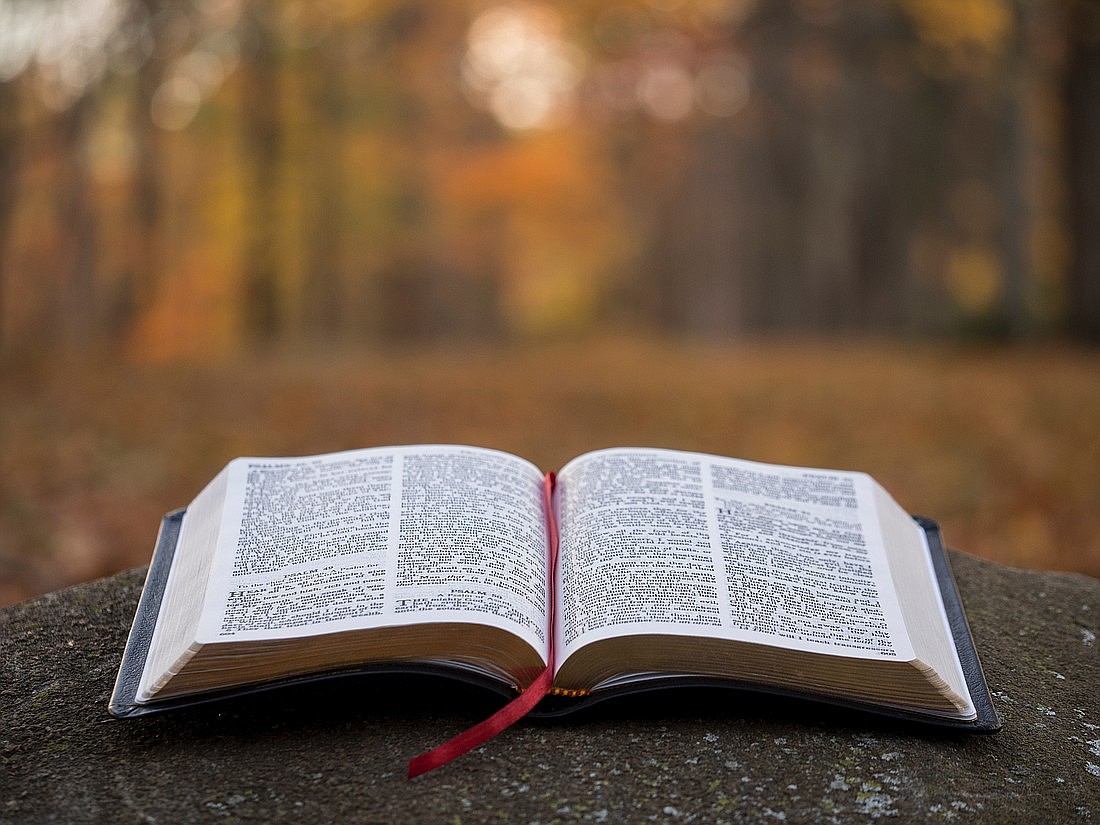August 21, 2024 at 1:11 p.m.
The importance and impact of Mass
Simon Peter answered him, “Lord, to whom shall we go? You have the words of eternal life. We have come to believe and to know that you are the Holy One of God.” — John 6:68-69
Today in our proclamation of sacred Scripture, we conclude this brief, five-week excursus into John’s Gospel. As we’ve mentioned, the Gospel readings in the Year B liturgical cycle are normally taken from the Evangelist Mark, but for the summer, we take a break and delve into the Eucharistic-themed sixth chapter of the Johannine Gospel.
Over the past four weeks, we’ve examined this “Bread of Life Discourse” within the context of John’s Book of Signs and the overall theological plan of his Gospel. We’ve studied the doctrine of the Real Presence of Christ and transubstantiation within the context of John 6. We’ve had the opportunity to see the deep, rich spirituality of a saint who was in love with Christ, truly living in the Eucharist — Thomas Aquinas, the Universal Doctor.
This week, I’d like to examine how, in a practical manner, we might best be able to form a Eucharistic spirituality, primarily one focused on the Mass. These tips are meant to be helpful and are, in no way, meant to exclude any other spiritualities or devotion to the Eucharist. They are also meant in no way to offend or denigrate other expressions of Eucharistic piety. These are simply things that I’ve personally found helpful as a priest, a spiritual director and, above all, as a Catholic Christian believer.
I’d like to propose that we need to see the Mass as the single most important thing of our day. Nothing in our spiritual life as Catholic Christians is as important as the Mass, because the Mass brings us Jesus’ Real Presence in the Eucharist.
The Mass is the central action of the Church’s life. It is on that altar where heaven and earth meet, time and eternity kiss, and God and humankind are reconciled. The Mass is, above all else, the celebration of the Paschal Mystery of the Church — Christ has died, Christ is risen, Christ will come again.
I began to appreciate the Mass during my time as a high school student at Cathedral Prep Seminary. Mass was part of the day and I was invited by the wonderful priests who served on the faculty at the time to become more involved in the liturgy as a sacristan. I truly believe that this was a key, pivotal and integral part of my awareness of my own priestly vocation.
The priests on the faculty at that time were all different, all with totally different personalities and interests, all teaching different subjects and moderating all sorts of different activities, but the things that united these good men who became my personal role models and heroes were their sharing in the ordained priesthood of Jesus Christ and their obvious love, care and devotion to the daily celebration of the Mass. To this day, I thank God for my time at Cathedral as a student and for my time on the faculty of Cathedral. It made me fall in love with the Eucharist.
By getting involved in the Eucharistic celebration, by learning about the Mass, and by serving as a sacristan of the chapel and as an altar server, I felt a sense of ownership and responsibility in the Mass. All of us, no matter what vocation with which we have been blessed, have an active and full part to play in the celebration of the Mass.
Get involved! Volunteer in whatever liturgical ministries are needed in our parishes. Volunteer to function in those ministries in which we feel comfortable. All are valued, all are needed, all help Christ to build up the Kingdom of God right here, right now.
Second, we might wish to prepare ourselves before the celebration of the liturgy. By gaining a familiarity with the readings that will be proclaimed during the Mass, by preparing them so that we can hear them proclaimed at Mass with a clear mind and heart, we can allow the liturgy to be that much richer. By arriving a few moments earlier than the start of Mass to fully recollect ourselves, to form an intention in our mind and heart, we can each, in our own way, ordained and lay, help make real the sacrifice of the Mass. By prayerful recollection and making a thanksgiving after reception of Holy Communion, we can allow ourselves to realize exactly who is living inside of us at that moment — Jesus Christ our Lord.
St. Thomas Aquinas once wrote: “Three things are necessary for the salvation of man: to know what he ought to believe; to know what he ought to desire; and to know what he ought to do.”
May we always appreciate and know the doctrine of Jesus in the Eucharist, may we always desire Jesus in the Eucharist, and may we always celebrate the Eucharist worthily and well.
- Tanzania’s Cardinal Pengo remembered as giant of faith, a ‘towering presence’ for Africa
- Bishops urge prudence, prayer, invoke Guadalupe’s protection as violence erupts in Mexico
- St. Francis’ relics open to public for first extended veneration in 800 years
- ‘We will grow in wisdom, holiness together,’ new bishop of Tucson, Ariz., tells faithful
- Pope renews ‘heartfelt appeal’ for ‘immediate ceasefire’ in Russia-Ukraine war
- Full text: Pope Leo XIV’s Angelus address given February 22, 2026
- God offers new possibilities, not prohibitions, with his invitation to love, pope says
- Find comfort, strength in Eucharist, pope tells attendees at LA Religious Education Congress
- Pope Leo XIV tells priests not to use AI to write homilies or seek ‘likes’ on TikTok
- Historical novel pitches Christian compassion against ideologies of hatred








Comments:
You must login to comment.